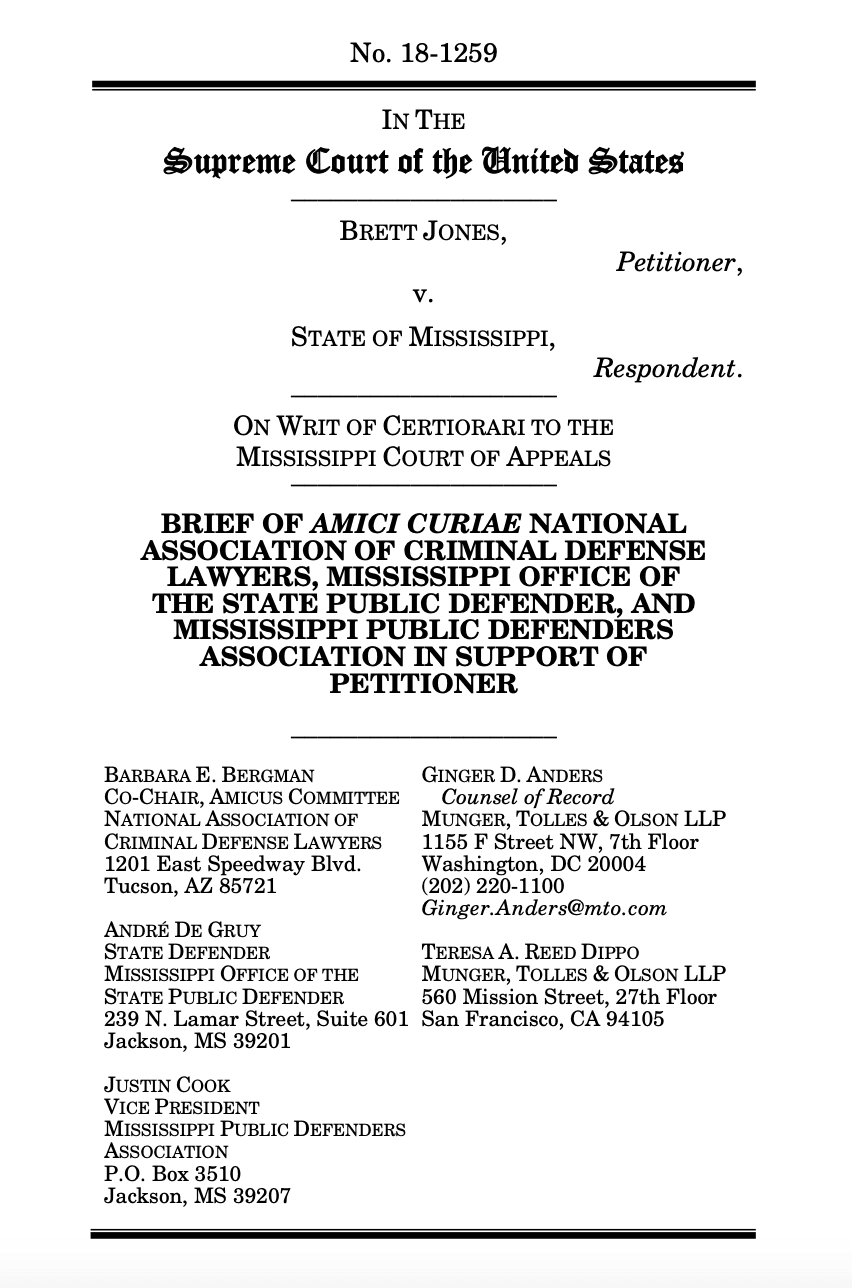
Summary of Argument
Miller v. Alabama held that a court considering whether to sentence a juvenile to life without parole must “distinguish[] … between ‘the juvenile offender whose crime reflects unfortunate yet transient immaturity, and the rare juvenile offender whose crime reflects irreparable corruption.’ ” 567 U.S. 460, 479–80 (2012) (quoting Roper v. Simmons, 543 U.S. 551, 573 (2005)). While the Court “d[id] not foreclose a sentencer’s ability to make th[e] judgment” that a juvenile is irreparably corrupt, thereby justifying a life-without-parole sentence, the Court warned that the sentence would be “uncommon”—because “children’s diminished culpability” and “heightened capacity for change” create “great difficulty” in concluding, at the outset, that a child is beyond rehabilitation. Id.
Montgomery v. Louisiana confirmed that “irreparable corruption” (or “irretrievable depravity,” or “permanent incorrigibility”—terms the Court has used interchangeably) is a gating requirement for a constitutional sentence of life without parole for a juvenile offender. 136 S. Ct. 718, 733, 734 (2016). Montgomery explained that Miller announced a substantive rule because it “rendered life without parole an unconstitutional penalty for ‘a class of defendants because of their status’—that is, juvenile offenders whose crimes reflect the transient immaturity of youth.” Id. at 734 (quoting Penry v. Lynaugh, 492 U.S. 302, 330 (1989)). Consistent with precedent, that substantive rule was retroactive “because it necessarily carries a significant risk that a defendant—here, the vast majority of juvenile offenders—faces a punishment that the law cannot impose.” Id. (quoting Schriro v. Summerlin, 542 U.S. 348, 352 (2004)) (alterations and quotation marks omitted).
Montgomery also addressed the procedural component of Miller’s rule, explaining that a sentencing hearing in which “youth and its attendant characteristics are considered” would be necessary to “separate those juveniles who may be sentenced to life without parole from those who may not.” 136 S. Ct. at 735 (citation omitted). Addressing Louisiana’s argument that Miller did not require trial courts to make a factual finding of permanent incorrigibility, the Court confirmed that it would “limit the scope” of procedural requirements that “intrud[e] more than necessary” on the States’ criminal justice systems. Id. At the same time, the substantive rule of Miller would be paramount: States are not “free to sentence a child whose crime reflects transient immaturity to life without parole” because “this punishment is disproportionate under the Eighth Amendment.” Id.
Four years after Montgomery, states that do not require a determination of permanent incorrigibility in order to sentence a child to life without parole are not reliably implementing the substantive rule of Miller. Mississippi cases illustrate the problems with that approach. Generally speaking, Mississippi courts presume a life-without-parole sentence is justified, and either avoid the question of permanent incorrigibility altogether, or require the juvenile offender to prove he will never reoffend. The resulting sentences of life without parole violate Miller’s substantive rule because they do not rest on a finding that the offender is more likely than not “permanently incorrigible.”
The safeguard of a finding of permanent incorrigibility is necessary to ensure that juvenile offenders receive life-without-parole sentences only when that sentence is proportionate and lawful. The finding requirement brings purpose and structure to a sentencer’s review of the juvenile offender’s individualized circumstances, ensuring that the sentencing analysis is not overwhelmed by the heinousness of the crime, or by the potential risk of immediate release (a consideration that should be left to a later parole board). Sentencers retain discretion to impose life without-parole sentences on juvenile offenders, but that discretion is properly bounded by “Miller’s central intuition—that children who commit even heinous crimes are capable of change.” Montgomery, 136 S. Ct. at 736.
Open Amicus Brief as PDF